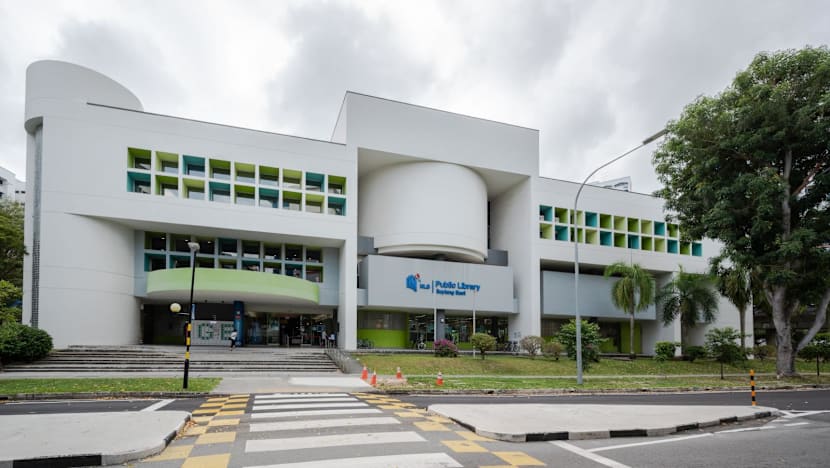Business
Geylang East Public Library Set to Relocate by 2030

The Geylang East Public Library in Singapore will relocate to the Tanjong Katong Complex by 2030 due to a significant decline in visitor numbers and high renovation costs. Minister of State for the Ministry of Digital Development and Information, Rahayu Mahzam, announced this decision in Parliament on September 23, 2023. Over the past nine years, the library has experienced a 31 percent decrease in visitors, dropping from approximately 670,000 in 2015 to under 470,000 in 2024.
The National Library Board (NLB) evaluated the feasibility of revamping the library at its current location on 50 Geylang East Ave 1, concluding that renovation costs would exceed twice the cost per square metre compared to relocating. The financial difference amounts to approximately S$22 million (around US$16.3 million).
Addressing the concerns raised by MP Tin Pei Ling, who spoke about the emotional significance of the library to local residents, Rahayu acknowledged the community’s attachment to the library. “For them, the building is more than a physical icon in MacPherson; it is a significant part of their memories,” she stated.
In July, Tin initiated a petition against the relocation, which has garnered 1,647 signatures as of the latest updates. Many residents feel a profound sense of loss at the prospect of losing a cherished community space.
Relocation Strategy and Future Library Plans
The move is part of a broader strategy by the NLB to relocate standalone libraries to shopping malls or integrated complexes, enhancing accessibility for the community. Other libraries, including those in Ang Mo Kio, Toa Payoh, and Jurong, are also set for similar relocations in the coming years. Rahayu elaborated that the NLB’s 15-year Libraries of the Future Masterplan aims to place libraries in locations that provide “easy access,” aligning with evolving community needs.
“Decisions to relocate libraries are made after careful consideration,” Rahayu noted, emphasizing factors like land use plans and the demographics of residents served by each library. The NLB hopes that the relocation will improve visitor numbers, as seen in other libraries, such as those at Harbourfront and Tampines, which reported visitor increases of 58 percent and 71 percent respectively over three years.
In response to concerns from residents about maintaining library access, Rahayu reassured that the NLB is actively engaging with the community to address their needs. Plans are in motion to establish a “library presence” in the area, potentially through a reading corner or pop-up library. Furthermore, the NLB is collaborating with grassroots organizations to facilitate access to digital resources and delivery services, ensuring that residents can continue to enjoy reading and learning opportunities.
Rahayu highlighted that despite the challenges faced at Geylang East, overall readership trends remain robust across the NLB network. In 2024, there were 20.8 million visitors to libraries, with over 24 million physical items and 14.8 million digital items checked out.
As libraries adapt to the demands of the digital age, they play an increasingly vital role in fostering community ties and promoting lifelong learning. Rahayu affirmed the NLB’s commitment to developing libraries as key community hubs in Singapore.
-

 World5 months ago
World5 months agoSouth Korea’s Foreign Minister Cho Hyun to Visit China This Week
-

 Business5 months ago
Business5 months agoStarling Bank Plans Secondary Share Sale, Targeting $5.4 Billion Valuation
-

 Top Stories5 months ago
Top Stories5 months agoMunsang College Celebrates 100 Years with Grand Ceremony
-

 World5 months ago
World5 months agoPAS Aims to Expand Parliamentary Influence in Upcoming Election
-

 Business7 months ago
Business7 months agoKenvue Dismisses CEO Thibaut Mongon as Strategic Review Advances
-

 Lifestyle6 months ago
Lifestyle6 months agoHumanism Camp Engages 250 Youths in Summer Fest 2025
-

 Sports6 months ago
Sports6 months agoDe Minaur Triumphs at Washington Open After Thrilling Comeback
-

 Sports7 months ago
Sports7 months agoTupou and Daugunu Join First Nations Squad for Lions Clash
-

 Top Stories7 months ago
Top Stories7 months agoColombian Senator Miguel Uribe Shows Signs of Recovery After Attack
-

 World7 months ago
World7 months agoASEAN Gears Up for Historic Joint Meeting of Foreign and Economic Ministers
-

 Health6 months ago
Health6 months agoNew Study Challenges Assumptions About Aging and Inflammation
-

 Business7 months ago
Business7 months agoOil Prices Surge Following New EU Sanctions on Russia









